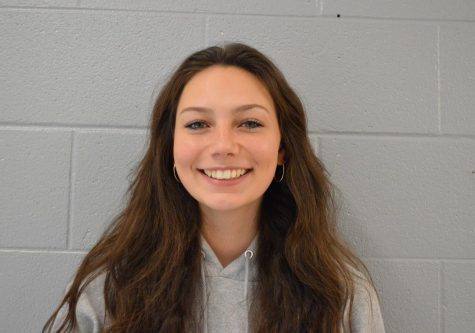Five Day School Weeks are Unhealthy and Not Beneficial to Students
Students are constantly overwhelmed by school and all things that come with it. By the time Friday rolls around, students are exhausted. By our fifth consecutive school day, all we want is sleep and to be able to go home without assignments, due dates and essays hanging over our heads. Pandemic aside, students – which, may I remind you, are children and teenagers – need to be able to have “me time.” Society has been preaching self care since I was a kid. When will schools catch up?
Education is, and will always be, vital to kids. However, the quality of education is even more important. Students could sit in a classroom every day a week, and could still be behind districts that are only open four days a week. What most school systems fail to understand is that every single class period needs to be valuable, and many students could confidently say that they are not. As young children, we used to love hearing, “Okay class, today is going to be an easy day,” but as we grow up, we develop a hatred for that same statement. With maturity comes logic, and logic says that going to school and not being taught something new every day is pointless and exhausting.
Everyone knows that teenagers worship alone time. Most of my classmates and I would rather squeeze in extra work each day in order to get just one more day off. Before the pandemic and hybrid schedules, I felt as though what I was being taught was not worthy of 50-minute class periods. Why would we have five “easy days” when we could have four days full of curriculum?
Junior volleyball player Meghan O’Sullivan is a very family and friend-oriented teenager. She is playing both club and school volleyball right now, every single day of the week. This is on top of her job at Fireside Grille, where she works weekend shifts. These responsibilities, along with being an upperclassman, contribute to making her life very stressful.
“In half of my classes, my teachers just give me something to work on in class as if it were an at-home day,” O’Sullivan said.
She believes that what she does in school could be completed just as well at home. This means that some of her teachers are not using class time to teach, rather to supervise assignments. That being said, it is clear to see that four-day school weeks would not even hurt the curriculum students follow.
Having a four-day school week would not take away the quality of education students receive… the quality is a completely different issue. The only thing changing would be our quality of life.
“On one hand, you could probably jam more into those four days, which might overwhelm students, but they’d be getting it done, and they’d have the extra day for the weekend which is always helpful,” Rose Gariecia, a student-teacher at Kaneland High School whom everyone knows as Miss Rose, said. “But on the other hand, you could fall behind on curriculum, especially for AP classes that are so structured and have so many things you need to cover in X amount of time, that it might be impossible for those higher-level classes. But, would four-day school weeks be possible? I think anything is possible, and we could probably figure it out if that was a switch that needed to happen, but some things would have to be reworked so students aren’t overwhelmed, and teachers aren’t overwhelmed with figuring out how to switch a five-day amount of time into four.”
Obviously, teachers are not eager to make this switch and don’t find it necessary. Personable teachers like Miss Rose are able to see both sides, which means the world to students. We just want our superiors who control our lives to give us more time to live it how we would like.
“The truth is, from a teacher’s point of view, I have my own assumptions about what students may like or prefer their school days to look like. However, I think what’s most important is to actually take the time to ask students what would make their time in school better and then do our best as teachers to implement their interests/desires in a practical and feasible way,” Miss Rose said.
Students should not grow up believing that school is their life. Being able to hang out with your friends and live a life of happiness is far more important than any piece of homework that anyone could receive. Just one extra day off of school would improve the quality of life for almost every student.
“I’m able to see my boyfriend and friends maybe two days a week, including weekends,” O’Sullivan said. “I haven’t been able to eat dinner with my family since the volleyball season started.”
Even teachers are able to admit that students are not able to see their friends and family enough.
“If you are doing the homework, thoroughly, probably not enough. Maybe there is some time, but probably not enough,” Miss Rose responded, when I asked whether or not she feels that students have time to relax and hang out with friends and family.
If one’s social life isn’t reason enough, there are other factors, such as mental health. Balancing school, sports, jobs, relationships and family is exhausting. And that is simply speaking for the average kid. Some students are forced by their parents to take honors and AP classes while also being team captain. Other students have to care for their own siblings until their parents come home from work. Other students have to hold a job in order to buy themself a car to get to work with.
“I can only speak from personal experience from student-teaching these past few months, and I think on average a lot of my students are struggling mentally. I mostly teach juniors and seniors, which are two of the toughest years of high school,and they’re having to deal with that during a pandemic so it’s extremely stressful,” Miss Rose said. “Additionally, students at all levels have their own personal struggles outside of school that also can and often does negatively impact their mental health.”
During the season, free time is a rarity for student athletes. As soon as they finish practice and go home, it’s more school work.
“Usually I get about two hours of homework per night, but it’s very hard to do it because I don’t have much time to,” O’Sullivan said while laughing at the harsh truth. “I feel overwhelmed by sports, school, relationships and family responsibilities every day of the week, including weekends…. I’m able to sit back and relax with no worries maybe like once a week, on Wednesdays for about two hours in between when school ends and volleyball practice begins.”
Aside from students, parents and districts would also benefit from a four-day school week. Besides for saving the time and energy of students, parents and teachers, schools themselves would save money.
According to NCSL.org, “Proponents of four-day school weeks say that even though cost savings are minimal, they are achieved. Anecdotal evidence also suggests that attendance improves; parents and teachers can schedule doctor’s appointments and other weekday commitments for Fridays rather than during school days. District administrators also claim that the appeal of a four-day work week helps recruit teachers in areas where it is consistently difficult to attract new staff.”
Another huge part of the mental health aspect of school days is whether or not a student is doing well in their classes. Being forced to go to school five days a week just to sit in a class you can not understand no matter how hard you try is painful. An extra day off for these students allows them to catch up on work, try a few practice problems or even get a tutor to help them. Students should not only have the weekend in order to help themselves out on school work.
Another factor is our futures. Teachers and parents love to tell students that getting into college is the biggest goal in our lives. But, how will students even decide on a college when we don’t have time to visit or tour them? Very specific students need to check out multiple colleges before they can happily decide on one, assuming their parents let them choose.
“I don’t have free time, so I just have to cancel things to visit colleges,” O’Sullivan said.
These college visits add up for students and their attendance. Missing school and practice, regardless of the excuse, is a very easy way for students and athletes to fall way behind on schoolwork and lose their playing time.
The past year has brought many challenges to both schools and students. Getting sick has always made it difficult for students to do schoolwork or even attend school. Having four-day school weeks would help sick students out in many ways. One less day of class means one less day of work to catch up on. That same day could then be used as a work day in order to complete missing assignments and study for tests. Not to mention, the day off could simply be a rest day for students under the weather. This goes for teachers as well- with a shortened week, they wouldn’t have to plan class for their students while they recover. The year of 2020 brought COVID-19, a very dangerous and contagious virus. Having COVID results in students not being allowed to come to school for two weeks or however long it takes for them to recover. Missing school for this long makes it very difficult for students to stay on top of assignments. They may not be able to take a test for two or more weeks, which makes it difficult for students to retain the information for the test and complete the work for the unit the rest of the class has moved on to.
Common illnesses come and go throughout schools constantly. Students, staff, and teachers could all contract the common cold or flu at any time. But this school year, illness has been handled very differently, especially COVID. Kaneland junior Sophia Drancik contracted COVID during the school year.
“Personally, as soon as my doctor told me I was positive, my mind immediately went to ‘Wow… I’m going to fall behind in school,’ instead of, ‘I need to rest and focus on my physical health’. Once I caught myself thinking that way, I was really disappointed that I was more worried about being overwhelmed by schoolwork as opposed to focusing on my physical well-being,” Drancik said.
But conflicting priorities are not the only struggle for students with COVID. As a student, getting your feet back on the ground after being sick is tough.
“Getting back into the swing of things was difficult. Many teachers were very, very understanding. However, some teachers gave me backlash when I didn’t turn in formatives for the first few days,” Drancik said. “It was frustrating that I had to explain myself and that I had to tell them that I was temporarily incapable of completing assignments for a few days due to being so exhausted both mentally and physically.”
If students got an extra day off of school, catching up would not be as exhausting and difficult as it is now. Students like Drancik would have been able to focus on resting and getting well instead of worrying about schoolwork.
Four-day school weeks could help kids be better, happier students who grow into better-prepared adults. The extra day off serves as a wonderful opportunity for endless possibilities. Students could have “me time”, tutoring, work a job, study and complete assignments, visit colleges or hang out with friends and families. Being an adult and having a career makes up the vast majority of our lives. Our teenage years should be spent feeling happy and free, not completing neverending schoolwork. As time passes, school has become more and more competitive. It should not eat our first 18 years of life away.

Position: Lifestyle Editor
Graduation Year: 2022
My Future Goals: I think I will be going to college in Florida and hope to major in communication...






